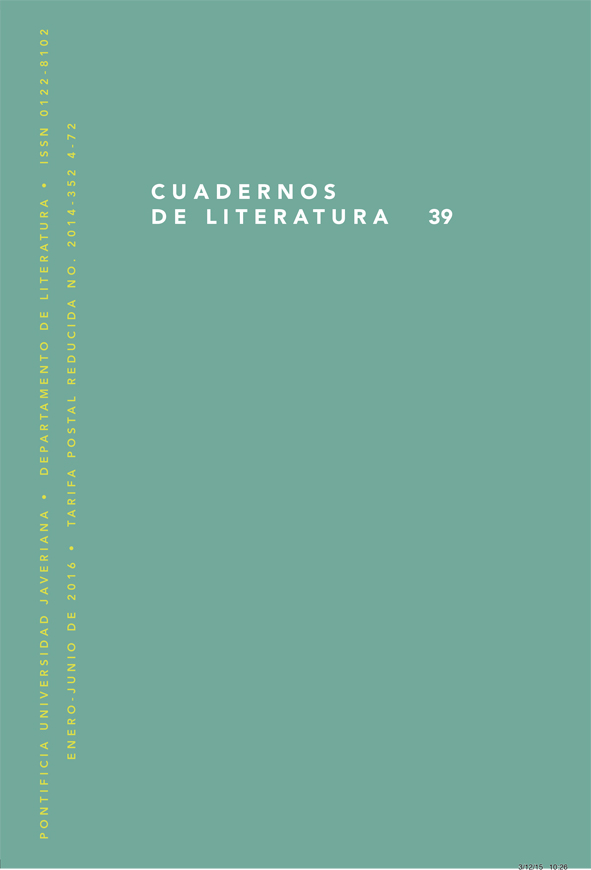Abstract
La crítica política revolucionaria de Esteban Echeverría indudablemente se basa en el ideal liberal de sujetos racionales y cultos, quienes libremente eligen establecer lazos fraternales entre sí para formar un pueblo unitario y nacional. Sin embargo, este ideal nunca se materializa en los espacios de los mundos que Echeverría habita (sean éstos reales o ficticios). En lugar de solamente historizar al autor, el presente ensayo lee su obra desde el punto de vista geográfico del espacio y el lugar. Esta perspectiva revela un cuerpo de escrituras que, a pesar de centrarse en el sujeto liberal, ofrece un catálogo de diversas formas de la no-subjetividad. A contrapelo de las intenciones del autor, su obra inconscientemente permite la entrada a la capital de toda una inundación de fuerzas, tanto humanas como no humanas, en un momento clave en la formación del orden jurídico constitucional en la Argentina.
Cuadernos de Literatura is registered under a Creative Commons Attribution 4.0 International Public License. Thus, this work may be reproduced, distributed, and publicly shared in digital format, as long as the names of the authors and Pontificia Universidad Javeriana are acknowledged. Others are allowed to quote, adapt, transform, auto-archive, republish, and create based on this material, for any purpose (even commercial ones), provided the authorship is duly acknowledged, a link to the original work is provided, and it is specified if changes have been made. Pontificia Universidad Javeriana does not hold the rights of published works and the authors are solely responsible for the contents of their works; they keep the moral, intellectual, privacy, and publicity rights.
Approving the intervention of the work (review, copy-editing, translation, layout) and the following outreach, are granted through an use license and not through an assignment of rights. This means the journal and Pontificia Universidad Javeriana cannot be held responsible for any ethical malpractice by the authors. As a consequence of the protection granted by the use license, the journal is not required to publish recantations or modify information already published, unless the errata stems from the editorial management process. Publishing contents in this journal does not generate royalties for contributors.


